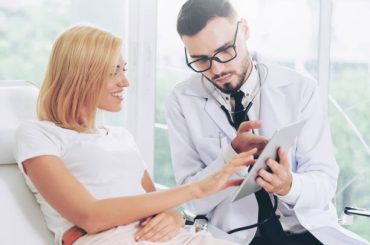Over the past decade, cannabis has become legal in a growing number of U.S. states. However, with increased marijuana use comes more concerns about impaired driving. Using cannabis alone is enough to make getting behind the wheel unsafe, but an even bigger concern is the combination of marijuana and alcohol use before driving.
How Cannabis Can Impair Driving
Cannabis contains a natural chemical called delta-9-tetrahydrocannabinol (THC). THC has psychoactive properties that affect the brain, leading to impaired judgment, slow reaction time, memory problems, reduced problem-solving skills, and distorted perceptions. These side effects of cannabis can greatly impair someone’s driving ability.
Studies show that a person has an increased risk for being involved in a car accident after using cannabis. However, the exact risk has been difficult to confirm because THC stays detectable in the body long after its effects have worn off.
New research found that cannabis-related car crash deaths in the United States have doubled since the year 2000. Additionally, the study found that the percentage of deaths involving both marijuana and alcohol has more than doubled. Cannabis seems to be a big risk factor for impaired driving, whether it involves cannabis alone or cannabis and alcohol combined.
The Role of Alcohol
With the legalization of marijuana, some people predicted that alcohol use would decrease. However, according to research, cannabis use actually increases the chances of alcohol being used when it comes to fatal car accidents.
Alcohol affects the brain and body in many ways, causing a loss of coordination, slowed reflexes, poor decision-making skills, and increased risk-taking behaviors. It can also impair a person’s eyesight, causing decreased peripheral vision, relaxed eye muscles that cause the eyes to close, and blurred vision, making it difficult to see the road and other cars.
These effects, combined with the effects of marijuana use, make for a dangerous state to be in behind the wheel.
The Dangers of Using Cannabis and Alcohol Together
A 2017 review found that individuals who use cannabis with alcohol tend to use more of both, increasing the risks associated with both substances. Many people think that because cannabis and alcohol are legal substances, it must be safe to combine them. However, combining any substances can bring increased danger, especially on the road.
Research shows that drinking alcohol before using marijuana can lead to intensified effects of marijuana. This is due to alcohol increasing the absorption of THC in a person’s system, leading to increased side effects and unpleasant symptoms like sweating, nausea, dizziness, and vomiting.
Alternatively, using marijuana before drinking may result in cannabis slowing the body’s alcohol absorption. This can lead someone to think that they are less drunk than they are, causing them to drink more than they would if they hadn’t used marijuana.
Tips for Safe Driving
Most conversations about driving under the influence focus on alcohol. However, statistics show that of crashes in which the driver is killed, 1 in 5 involve drugs other than alcohol, such as marijuana. Individuals who use marijuana are also more likely to use alcohol, making driving even more dangerous.
Here are some tips for staying safe when around cannabis and alcohol:
- Avoid using substances before driving
- Understand the risks of combining cannabis and alcohol
- Speak up if you see a friend trying to drive under the influence of cannabis or alcohol
- Call a ride if you or a friend is unable to drive safely
If you are suffering from the damaging effects of cannabis use and struggling to stop using despite harmful consequences, help is available.
About Pocono Mountain Recovery Center
Pocono Mountain Recovery Center is located in Henryville, Pennsylvania, and provides evidence-based treatment for adults who are struggling with addictions and co-occurring mental health concerns. We offer several levels of care, including residential treatment, partial hospitalization programming, and intensive outpatient programming. Clients can also benefit from our sober living homes, family program, and continuing care options. Our counselors are dedicated to making sure that each client receives the personalized services they need to begin recovering from an addiction.






